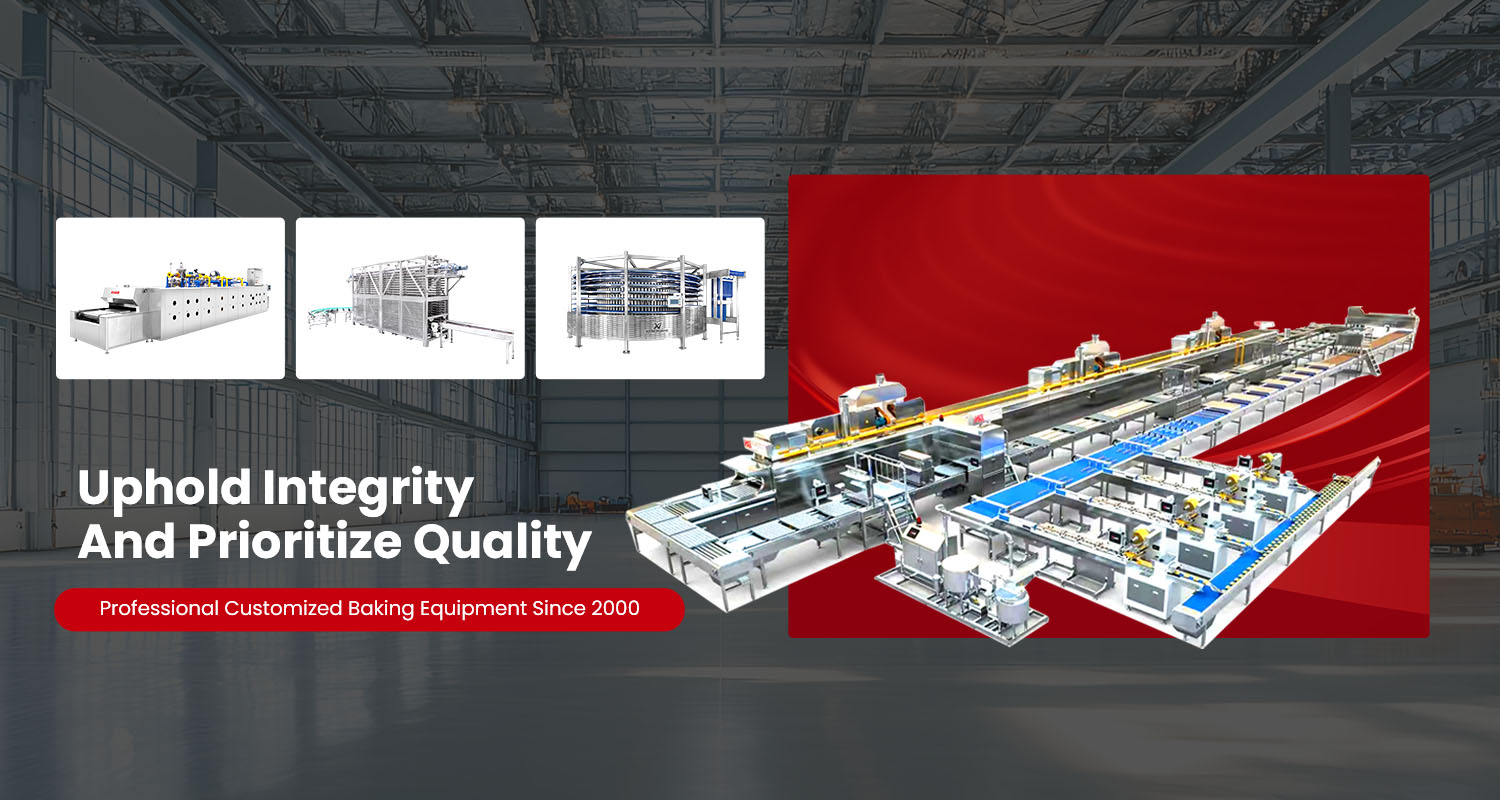How to Scale a Bakery Production Line from Small to Large?
Scaling a bakery production line is a strategic move that transforms a small operation into a high-capacity manufacturing system. It involves balancing product quality, production efficiency, and cost management while maintaining consistency across every batch. A well-planned transition can increase output, reduce waste, and open opportunities for wholesale or export growth.
Assessing Current Capacity and Goals
The first step in scaling is to evaluate your existing setup. Determine the current production capacity per day, identify bottlenecks in mixing, proofing, or baking, and calculate how much additional capacity is needed to meet future demand. Factors such as target markets, shelf life of products, and packaging methods influence how far automation and expansion should go. A thorough capacity audit helps define investment priorities and technical requirements for the new line.
Equipment Upgrades and Automation
As production volume increases, manual processes become a limiting factor. Upgrading to automated or semi-automated equipment ensures consistency and saves labor. Key systems to consider include:
| Process | Manual Setup | Scalable Upgrade |
|---|---|---|
| Mixing | Single-bowl mixer | Continuous dough mixer |
| Forming | Manual portioning | Automated divider and rounder |
| Proofing | Rack proofers | Tunnel or multi-deck proofing chambers |
| Baking | Deck ovens | Continuous conveyor ovens |
| Packaging | Hand wrapping | Automated flow-wrap and sealing machines |
High-quality equipment improves precision in weight and texture, helping maintain product standards during large-scale runs. Modern bakery lines like those offered by KC-SMART provide modular systems that can be customized and expanded gradually, minimizing downtime during transitions.
Facility Layout and Workflow Optimization
A growing production line demands a layout that supports smooth material flow. Ingredients should move logically from storage to mixing, forming, proofing, baking, cooling, and packaging without backtracking. The workspace must also account for food safety regulations and staff movement. Establishing zones for raw materials, semi-finished goods, and finished products prevents contamination and ensures efficient traceability.
Optimizing the layout also reduces time loss between operations. Conveyor belts and automated transfer systems can connect sections of the line, while centralized control panels allow operators to monitor multiple stages simultaneously. Regular time-motion studies and workflow simulations are useful for detecting inefficiencies before they affect output.
Consistency and Quality Control
Scaling often introduces variability in dough handling, baking temperature, and product uniformity. Implementing quality control checkpoints is essential to maintain the same taste, texture, and appearance as the small-batch version. Use digital sensors and monitoring software to control humidity, oven heat, and fermentation times. Standardized recipes and automated dosing systems ensure ingredient precision even when producing at higher volumes.
Laboratory testing for moisture content, microbial stability, and shelf life helps confirm that large-scale production meets regulatory standards and customer expectations. Investing in automated inspection devices—such as weight checkers and visual scanners—adds another layer of accuracy and consistency.
Workforce Training and Supervision
Scaling production requires not only equipment but also skilled personnel to manage it. Operators, technicians, and quality controllers must be trained on new machinery and digital control systems. Clear standard operating procedures (SOPs) should be established for cleaning, maintenance, and production schedules.
Cross-training employees across multiple roles increases flexibility, especially during high-demand periods. Establishing a tiered supervision structure—where experienced staff oversee new operators—ensures smooth daily performance and reduces error rates during scale-up.
Supply Chain and Ingredient Management
A larger production line consumes more ingredients, packaging materials, and energy. Securing stable suppliers and negotiating bulk contracts helps control costs. Storage facilities should be upgraded to maintain consistent temperature and humidity, preventing spoilage. Ingredient traceability systems become vital when producing at scale, allowing quick identification of batch origins if issues arise.
Adopting an enterprise resource planning (ERP) system can automate inventory management and synchronize it with production planning. This integration minimizes raw material shortages and excess stock, keeping the entire bakery system balanced.
Maintenance and Expansion Planning
Preventive maintenance becomes increasingly important as production scales up. Scheduled servicing of mixers, ovens, and conveyors prevents breakdowns that could halt the line. Maintenance data tracking helps predict equipment lifespan and plan replacements before failures occur.
A scalable design should allow for future expansion without major reconstruction. Modular equipment—like that developed by KC-SMART—supports step-by-step capacity upgrades. This flexibility helps bakeries adjust production to market changes while keeping investment risks low.
Energy Efficiency and Sustainability
Larger operations consume more power and water, making efficiency a key concern. Energy-saving ovens, variable-speed motors, and heat recovery systems reduce operating costs. Water recycling systems and optimized ventilation also contribute to sustainability goals. Many bakeries now integrate renewable energy sources and sustainable packaging to align with global environmental standards.
Implementing these technologies not only lowers expenses but also enhances brand reputation among distributors and consumers who value environmentally responsible suppliers.
Conclusion
Scaling a bakery production line requires precise planning, equipment modernization, and process control. From optimizing layouts and staff training to adopting automated systems, every step ensures higher output without compromising product quality. By collaborating with advanced solution providers such as KC-SMART, bakeries can transition from small-scale craftsmanship to efficient industrial production while maintaining the taste and quality that define their brand.






